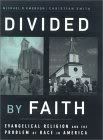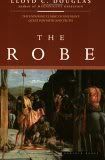 This week we'll be diving into Narrative and Providence in Scott Bader-Saye's Following Jesus in a Culture of Fear.
This week we'll be diving into Narrative and Providence in Scott Bader-Saye's Following Jesus in a Culture of Fear.
Now you may be wondering what in the world providence has to do with the topic of fear. Well, a lot actually. You see, he identifies a common yet subtle fear that afflicts most of us at some time or another: purposelessness. It's easy to worry that our lives are simply a series of meaningless actions, but he argues that the Christian story provides the larger context that gives us meaning. Not to mention hope.
One of the important skills we must learn is to read our own stories, the story of history, the story of culture, etc. figuratively with the story of scripture. An example of this can be found in Elie Wiesel's book Night, written about his experience in the Auschwitz concentration camp. In it, some of his fellow inmates struggle to interpret the horror in terms of the biblical pattern of exile, while others drew on apocalyptic imagery. Wiesel himself attempted to interpret the experience through the lens of Job. In each case, they placed themselves within the biblical narrative to interpret the events. Again, not to explain causation, but to interpret them in a meaningful way. This type of figurative reading is poetry, not science, and is flexible enough to allow multiple readings at once as well as for the interpretations to change as times and events change.
In addition to learning to read figuratively, we can read our lives within the larger narrative of God's redemptive plan. Sam Wells' uses the analogy of a 5 act play (86):
* Act 1: Creation
* Act 2: God's calling of Israel
* Act 3: God's incarnation in Jesus Christ
* Act 4: God's calling and sending of the church
* Act 5: The culmination of the story in the reign of God
As we walk through scripture and become acquainted with the overarching themes and the narrative that enfolds us from beginning to end, we are able to place ourselves in act 4, part of the continuing story. This placement gives meaning to our lives, reconnects us when we are feeling disconnected, and frees us of the burden and pressure of creating a new story by allowing us to participate fully in a story that is already being told. And we know the ending: the kingdom of God. So while we strive and try and persevere, we can also rest in the true hope of God's redemption, knowing that whatever surprises life throws at us, as the author of the story God can and will write a good ending. Or has written it: in Christ act 5 has already definitively been decided.
Well, to be honest, this was a chapter packed full of important theological nuances and helpful anecdotes, and I feel certain that in condensing it for blogging purposes it has lost much of its punch. Please comment if I've left out the bit that makes it all make sense, and I'll try to clarify it there.
Next week: Security and Vulnerability









3 comments:
Jasie, it certainly is comforting to know that God will write a good ending given some of lifes surprises, and that in fact, it has already been written.
Reading our own stories figuratively with the story of scripture seems to me to be a difficult task because of how different things from scripture can be interpreted in different ways. So many times it is tempting to come up with a definitive answer on something that I read, however that may not be the best thing to do.
Mike
Transient Walker
The Transient Walker
The Transient Walker
Image hosted by servimg.com
Walking Home
Looking for an open doorway where eye can avoid the rain to stay warm with my blanket to keep from the inevitable decay the day the day will start again so eye can walk again?
The people are the same they never change
Judging me as less then them occasionally there is one to be a friend SHE listened to me and took the offering from my hand a poem given to be remembered to be read and marveled at she will read how flowers fade and wonder at this MAN that gave her such a thing and eye am blessed to have just such a friend as this kind stranger she did not poo at me or shudder from the application of my hand upon the card the faded card of poem there she took it like a jewel and told me in confidence eye collect the poetry eye COLLECT poems said she
And eye just had to smile for eye had written flowers fade on the back of an old file card and now we are both strangers
nevermore. She collected the best poem of them all.
Mike,
Sorry for the delayed response... moving and goodbyes and all that is time consuming!
Yeah, I know what you mean about the temptation to come up with the answer. The tension is difficult to live in, for sure. I think that what Bader-Saye is talking about is more a practical interpretation - not an exegesis fit for a sermon - but a way of reading scripture into our lives in meaningful ways. I'm drawn to the flexibility of such a reading - it seems like it gives God room to speak to us in new ways through old words. Like when Edith Schaeffer ‘heard’ God's promise about l'abri in the words of Isaiah. Not what the text meant in its original context, but still true.
Of course, there would have to be some limitations to it. The words still have meaning and content, and I wouldn’t want to stretch it beyond recognition. But I find it so helpful and comforting to see parallels in the biblical story with my story, and instructive in both positive and negative ways of reacting.
Post a Comment